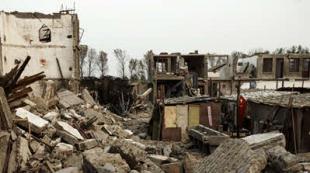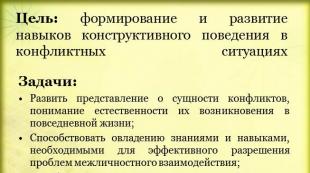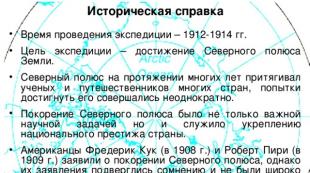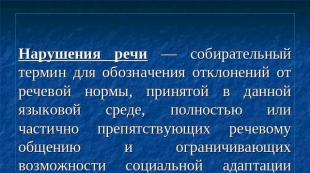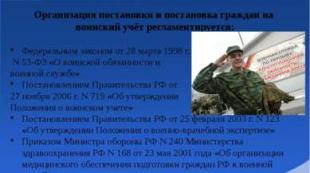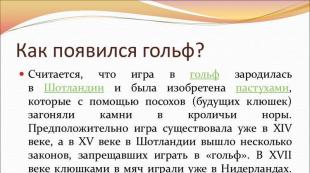The peace of Paris was concluded in. Peace of Paris: Humiliation of Russia or Stimulus for Great Reforms? Treaty of Paris
March 18 (30), 1856 in Paris at the final meeting of the Congress of Powers, representatives of Russia (A. F. Orlov, F. I. Brunnov) on the one hand, France (A. Valevsky, F. Burkene), Great Britain (G. Clarendon , G. Kauli), Turkey (Ali Pasha, Cemil Bay), Sardinia (K. Cavour, S. Villamarina), as well as Austria (K. Buol, I. Gubner) and Prussia (O. Manteuffel, M. Garzfeldt) - on the other hand, the Treaty of Paris was signed, which ended the Crimean War of 1853-1856.
In 1854, the troops of the allied powers of Turkey landed in the Crimea, inflicted a number of defeats Russian army and began the siege of Sevastopol. In 1855 Russia found itself in diplomatic isolation. After the fall of Sevastopol, hostilities actually ceased. On February 1 (13), 1856, a preliminary agreement was held in Vienna on the conditions for concluding a peace treaty, and on March 18 (30), 1856, it was signed at the Paris Congress.
Russia returned Kars to Turkey in exchange for Sevastopol, Balaklava and other cities in the Crimea captured by the allies; conceded to the Moldavian Principality the mouth of the Danube and part of Southern Bessarabia.
The condition of the Paris Treaty of 1856 that was especially difficult for Russia was the proclamation of the “neutralization” of the Black Sea: Russia and Turkey, as the Black Sea powers, were forbidden to have a navy on the Black Sea, and military fortresses and arsenals on the Black Sea coast. The Black Sea straits were declared closed to military ships of all countries. Thus, the Russian Empire was placed in an unequal position with the Ottoman Empire, which retained its entire naval forces in the Marmara and Mediterranean Seas.
The Treaty of Paris established the freedom of navigation of merchant ships of all countries on the Danube, which opened up scope for the wide distribution of Austrian, English and French goods on the Balkan Peninsula and caused serious damage to Russia's exports. The treaty deprived Russia of the right to protect the interests of the Orthodox population in the territory of the Ottoman Empire. Moldavia, Wallachia and Serbia remained under the sovereignty of the Turkish sultan, and the collective protectorate of the great powers was recognized over them.
3 conventions were attached to the agreement: the 1st confirmed the London Convention of 1841 on the closure of the Bosphorus and Dardanelles for military vessels of all countries except Turkey;
The 2nd set the number of light military ships of Russia and Turkey on the Black Sea for patrol service (Russia and Turkey could only contain 6 steam ships of 800 tons each and 4 ships of 200 tons each for patrol service);
The 3rd obliged Russia not to build military fortifications on the Aland Islands in the Baltic Sea.
As a result of a long diplomatic struggle of the Minister of Foreign Affairs of Russia A. M. Gorchakov at the London Conference in 1871, Russia achieved the abolition of the neutralization of the Black Sea. In 1878, according to the Treaty of Berlin, signed within the framework of the Berlin Congress, which took place as a result of the Russian-Turkish war of 1877-1878, the Russian state was able to return all the lost territories.
Lit.: History of diplomacy. 2 ed. T. 1. M., 1959; The Paris Congress and the World // Tarle E. V. Crimean War. M.-L., 1941-1944. T. 2. Chap. twenty; The same [Electronic resource]. URL :
On March 30, 1856, at a congress in Paris, a peace treaty was signed between coalition on the one hand, which included many allied countries, and Russian Empire. The hostilities, which lasted about two and a half years, could not lead to the desired result for any of the conflicting parties.
In the event of continued hostilities in which no one was interested, the coalition suffered heavy losses, fighting, in fact, away from their territories. The constant landing of troops was too costly - and an energy-consuming enterprise. The Russian Empire did not want to lose its grip on European and Black Sea borders, and in the event of a continuation of the war, there was a possibility of losing influence in these territories.
Brief description of the Crimean War
The reason for the conflict is the desire of the Russian Emperor Nicholas I to separate from the weakened Ottoman Empire Balkan territories, supporting the struggle of the Orthodox Slavs with the influence of the Muslim empire. The conflict began to develop Great Britain, in whose interests it was to oust Russia from Europe and knock it down from its dominant position in the Russo-Turkish war. The British were supported by France, in the person of Napoleon III, who wanted to strengthen his power by "revenge" for 1815. (Russian capture of Paris). Several more countries joined the alliance and supported the military clash. And also the participants on the side of the coalition under the influence of Turkey were: the North Caucasian Imamat, the Circassians and the Principality of Abkhazia. Neutrality was occupied by the Kingdom of Prussia, the Swedish-Norwegian Union and the Austrian Empire. The indecision of the Russian military leaders made it possible for the coalition troops to land on the territory of the Crimea, from where the allied army began its advance to the East. The outcome of the war was the Treaty of Paris.
Participating countries
Representatives of the following countries arrived at the Paris Congress from the side of the coalition: Great Britain, France, the Ottoman Empire, Austria, Prussia and the Kingdom of Sardinia. The second side was represented by the Russian Empire without the support and any allies.
Representatives
Each side put forward two diplomats. At the meetings of the Congress, the French Minister of Foreign Affairs Alexander Walevsky was the chairman.
1st representative | 2-representative |
|
|---|---|---|
Russian empire | Alexey Orlov | Phillip Brunnow |
Ottoman Empire | Aali Pasha | Jamil Bay |
Great Britain | George Villiers Clarendon | Henry Wellesley |
Alexander Valevsky | François Adolphe de Bourkenet |
|
Kingdom of Sardinia | Benso di Cavour | S. di Villamarina |
Carl Buol | Johann Hübner |
|
Otto Theodor Manteuffel | M. Garzfeldt |

Main articles of the treaty
In Article III of the Paris Tract Russian emperor pledged to return to Turkey city of Kars and other Ottoman possessions occupied by Russian troops.
In Article XI, it was announced that from now on the Black Sea is neutral, which implies a ban on the navigation of military ships on these waters (i.e., this article deprive Russia of the navy).
In XIII it is forbidden to keep in coastal zones military docks and arsenals, for the rapid deployment of the naval flotilla.
Article XXI says that the lands given by Russia go to the Moldavian principality under the rule of Turkey.
Article XXII states that the Moldavian and Wallachian principalities remain under Turkish rule.
In Article XXVIII, the Principality of Serbia also remains under Turkish rule.
Also into the politics of the principalities and their independence Turkey has no right to interfere, according to agreements with European countries.
Outcome of negotiations
The result was humiliating for Russia, since it was deprived of one of its most significant advantages - the most powerful fleet on the Black Sea. The surrender of the conquered territories from the Russian Empire by the coalition was not such distressing news as the deprivation of one of the trump cards in the war with the Ottoman Empire.
Articles challenged by Russia
At the time of the signing of the Paris Peace Treaty, none of the articles could be challenged. But in 1871 on London Convention it turned out to cancel some of the articles by drawing up a new treaty.
Thanks to the new treaty, both Russia and Turkey had the right to have any number of military fleets in the Black Sea. It was a real diplomatic victory for Russia.
Document lifespan
The Paris Peace Treaty lasted in the form in which it was signed for 15 years. During this time, the Minister of Foreign Affairs of Russia A. M. Gorchakov, was able to revise the articles of the document and find convincing arguments for the creation of a new treatise.
Reflection in history
The Paris Peace Treaty turned the situation in Europe upside down. Russia was placed in a rigid framework, which curtailed its capabilities in the war with the Ottoman Empire, even if it was weakened. A system built on conditions Russian Empire since 1815 (Vienna Treaty), completely collapsed. Karl Marx, as a contemporary of what is happening, wrote the following: The supremacy in Europe passed from St. Petersburg to Paris».
Bibliography:
- State edition of political literature - "Collection of treaties between Russia and other states 1856-1917" - edition of Moscow - 1952, 450 p.
This history is old, it is already more than a century and a half, but the geographical names and countries, the mention of which is inevitable in the presentation of its plot, evoke certain associations with modernity. Crimea, Turkey, Russia, France, Britain - these are the scenery for the dramatic events that developed in the middle of the 19th century. All wars end in peace, even the longest and bloodiest. Another question is to what extent its conditions are beneficial to some countries and humiliating to others. The peace of Paris was the result Crimean War which was waged against Russia by the combined troops of France, Great Britain and Turkey.
Pre-war situation
In the middle of the century Europe experienced a serious crisis. inside Austria and Prussia could lead to the disintegration of these states, the displacement of borders and the collapse of the ruling dynasties. The Russian tsar sent an army to help the Austrian emperor, which stabilized the situation. It seemed that peace would come for a long time, but it turned out differently.
Revolutionary movements arose in Wallachia and Moldavia. After the entry of Russian and Turkish troops into these areas, a number of controversial issues arose regarding the boundaries of the protectorates, the rights of religious communities and Holy places, which ultimately meant a conflict regarding the spheres of influence of the powers adjacent to the Black Sea basin. In addition to the main countries directly interested, other states were drawn into it, not wanting to lose their geopolitical benefits - France, Britain and Prussia (which quickly forgot about gratitude for the miraculous salvation of their monarch). The Russian delegation headed by Prince. Menshikov did not show the necessary degree of diplomacy, put forward ultimatum demands and, without achieving a result, left Constantinople. In early June, forty thousandth Russian corps invaded the Danubian principalities. In autumn, the fleets of France and Britain led their warships through the Dardanelles, providing military assistance to Turkey. On November 30, a squadron under the command of Ushakov launched a preemptive strike against the Turkish naval forces in Sinop, and the Western powers intervened directly in the conflict, which came as a surprise to Nicholas I. Contrary to expectations, it turned out to be well prepared. In 1854 the Crimean War began.

War
It seemed risky to the Western powers to conduct a land war with Russia (the Napoleonic campaign was still fresh in their memory), and the strategic plan was to strike at the most vulnerable place - in the Crimea, using the advantage of the naval forces. The poorly developed link between the peninsula and the central provinces played into the hands of the Anglo-French-Turkish coalition, which made it difficult to supply troops and supply reinforcements. Yevpatoria became the landing site, then there was a serious clash on it. It turned out that the Russian troops were not sufficiently prepared for war both in terms of weapons and in terms of training. They had to retreat to Sevastopol, the siege of which lasted a year. In the face of a lack of ammunition, food and other resources, the Russian command managed to establish the defense of the city, in short time build fortifications (initially there were almost none on land). Meanwhile, the forces of the Western Allies were suffering from disease and daring sorties by the defenders of Sevastopol. As the participants in the negotiations later noted, the signing of the Peace of Paris took place with the invisible participation of the city that died heroically during the defense.

Peace conditions
Ultimately, Russia suffered a military defeat. In 1855, during the defense of Sevastopol, Emperor Nicholas I died, and Alexander II inherited the throne. The new autocrat understood that the fighting, despite the brilliant successes in the Asian theater, was developing unfavorably for Russia. The death of Kornilov and Nakhimov actually beheaded the command, further holding the city became problematic. In 1856, Sevastopol was occupied by the troops of the Western coalition. The leaders of Britain, France and Turkey drew up a draft agreement consisting of four points, which was accepted by Alexander II. The treaty itself, called the Peace of Paris, was signed on March 30, 1856. It should be noted that the victorious countries, exhausted by a long military campaign, very costly and bloody, took care of the acceptability of his points for Russia. This was facilitated by the victorious actions of our army in the Asian theater, in particular, the successful assault on the fortress of Kare. The conditions of the Peace of Paris primarily affected relations with Turkey, which undertook to ensure the rights of the Christian population on its territory, the neutrality of the Black Sea area, the retreat in its favor of two hundred square miles of territory and the inviolability of its borders.

Peaceful Black Sea
At first glance, the just demand for the demilitarization of the Black Sea coast in order to avoid further conflicts between countries actually contributed to the strengthening of Turkey's position in the region, since the Ottoman Empire reserved the right to have fleets in the Mediterranean and Marmara seas. The peace of Paris also included an annex (convention) concerning the straits through which foreign warships were not to pass in peacetime.

End of the terms of the Peace of Paris
Any military defeat leads to limited opportunities the defeated side. The Peace of Paris changed the balance of power in Europe for a long time, which had developed after the signing of the Vienna Treaty (1815), and not in favor of Russia. The war as a whole revealed many shortcomings and vices in the organization of army and navy construction, which prompted the Russian leadership to carry out a number of reforms. After another, this time victorious, Russian-Turkish war (1877-1878), all restrictions on sovereignty and territorial losses were leveled. Thus ended the Treaty of Paris. The year 1878 became the date of the signing of the Berlin Treaty, which restored Russia's regional dominance in the Black Sea.
). Signed in Paris on 18 (30) March at the closing session of the Congress of Powers by representatives of Russia (A. F. Orlov, F. I. Brunnov), France (A. Valevsky, F. Bourkenet), Great Britain (G. Clarendon, G. Cowley) , Turkey (Ali Pasha, Cemil Bay), Austria (K. Buol, I. Gübner), Prussia (O. Manteuffel, M. Garzfeldt), Sardinia (K. Cavour, S. Villamarina). The tsarist government, having suffered a defeat in the war, in the conditions of a maturing revolutionary situation, needed peace. Using the contradictions between the victors and their difficulties in connection with heavy losses near Sevastopol, Russian diplomacy achieved a softening of the peace conditions. Russia returned Kare to Turkey (in exchange for Sevastopol and other cities occupied by the allies); The Black Sea was declared neutral with the prohibition of Russia and Turkey to have a navy and arsenals there; freedom of navigation on the Danube was proclaimed under the control of international commissions; Russia handed over to Moldavia the mouth of the Danube and part of Southern Bessarabia; the powers, undertaking not to interfere in the affairs of Turkey, guaranteed the autonomy of Serbia, Moldavia and Wallachia within the framework of the Ottoman Empire (which excluded the claims of tsarism for special “protection” in relation to the Danubian principalities and Orthodox subjects of Turkey). 3 conventions were attached to the agreement (the 1st confirmed the London Convention of 1841 on the closure of the Black Sea Straits for military ships, the 2nd established the number of light military ships of Russia and Turkey on the Black Sea for patrol service, and the 3rd obliged Russia not to build military fortifications on the Aland islands in the Baltic Sea). The P.M.D. weakened the positions of tsarism in Europe and the Middle East and led to a further aggravation of the Eastern Question. In 1859-62 Moldavia and Wallachia, with the support of Russia and France, united to form the Romanian state. This was a deviation from the conditions of the P. M. D., which, however, did not arouse objections from the Western powers. In 1870-71, Russia refused to recognize the articles of the P. M. D., which forbade it to have a navy and arsenals on the Black Sea, and the Western powers were forced to recognize the new state of affairs (see Gorchakov's circulars, Straits Conventions of London). Russia's victory in the Russo-Turkish War of 1877–78 caused the P. M. D. to be replaced by a treatise adopted at the Berlin Congress of 1878 (See Berlin Congress of 1878).
Lit.: Collection of agreements between Russia and other states. 1856-1917, M., 1952; History of Diplomacy, 2nd ed., vol. 1, M., 1959.
I. V. Bestuzhev-Lada.
Big soviet encyclopedia. - M.: Soviet Encyclopedia. 1969-1978 .
See what the "Paris Peace Treaty of 1856" is in other dictionaries:
This term has other meanings, see Paris Peace. Treaty of Paris (... Wikipedia
Treaty that ended the Crimean War of 1853 56. Signed in Paris on March 18 (30) to conclude. meeting of the Congress of Powers by representatives of Russia (A.F. Orlov and F.I. Brunnov), Austria (K. Buol, I. Gübner), France (A. Valevsky, F. Burkene), ... ... Soviet historical encyclopedia
Treaty of Paris, Treaty of Paris: Treaty of Paris (1259) between the English and French kings on the first renunciation of claims to Normandy, Maine and other French territories lost by England under John Landless, but ... ... Wikipedia
The Paris peace treaty (tract) was signed on March 18 (30), 1856. Its discussion took place at the congress that opened on February 13 (25), 1856 in the capital of France. The congress was attended by Russia, France, England, Austria, Turkey and Sardinia ... Wikipedia
Preliminary treaty that ended the Russian-Turkish war of 1877 78. Signed on February 19 (March 3) in San Stefano (San Stefano, now Yesilkoy, near Istanbul) from the Russian side by Count N. P. Ignatiev and A. I. Nelidov, with the Turkish Safvet ... … Great Soviet Encyclopedia
Treaty of Paris, Treaty of Paris, Treaty of Paris: Treaty of Paris (1229) between Count Raymond VII of Toulouse and King Louis IX of France, who graduated from the Albigensian crusade. Treaty of Paris (1259) between ... ... Wikipedia
Treaty of Paris (1259) between the English and French kings on the former's renunciation of claims to Normandy, Maine and other French territories lost by England under John Landless, but the preservation of Guyenne. The agreement was one of the reasons ... ... Wikipedia
The Paris peace treaty (tract) was signed on March 18 (30), 1856. Its discussion took place at the congress that opened on February 13 (25), 1856 in the capital of France. The congress was attended by Russia, France, England, Austria, Turkey and Sardinia ... Wikipedia
The Paris peace treaty (tract) was signed on March 18 (30), 1856. Its discussion took place at the congress that opened on February 13 (25), 1856 in the capital of France. The congress was attended by Russia, France, England, Austria, Turkey and Sardinia ... Wikipedia
[…]ARTICLE III
E. in. the emperor of all Russia undertakes to return e.v. to the sultan the city of Kars with its citadel, as well as other parts of the Ottoman possessions occupied by Russian troops. […]
The Black Sea is declared neutral: the entry into the ports and waters of it, open to merchant shipping of all peoples, is formally and forever forbidden to warships, both coastal and all other powers, with those only exceptions, which are decided in Articles XIV and XIX of this Treaty. […]
ARTICLE XIII
Due to the declaration of the Black Sea as neutral on the basis of Article XI, it cannot be necessary to maintain or establish naval arsenals on the shores of it, as having no purpose, and therefore E.V. Emperor of All Russia and H.I.V. Sultans undertake not to start or leave any naval arsenal on these shores.
ARTICLE XIV
Their Majesties the All-Russian Emperor and the Sultan concluded a special convention determining the number and strength of light ships that they allow themselves to maintain in the Black Sea for the necessary orders along the coast. This convention is appended to this treatise and will have the same force and effect as if it were an integral part of it. It may neither be destroyed nor altered without the consent of the Powers which have concluded
real treatise. […]
ARTICLE XXI
The expanse of land ceded by Russia will be annexed to the Principality of Moldavia under the supreme authority of the Sublime Porte. […]
ARTICLE XXII
The principalities of Wallachia and Moldavia will, under the supreme authority of the Porte and with the guarantee of the contracting powers, enjoy the advantages and privileges that they enjoy today. None of the sponsoring powers is granted exclusive protection over them. No special right to interfere in their internal affairs is allowed. […]
ARTICLE XXVIII
The Principality of Serbia remains, as before, under the supreme authority of the Sublime Porte, in accordance with the imperial Hati-Sheriffs, who affirm and determine the rights and advantages of it, with the common combined guarantee of the contracting powers. In consequence of this, the said Principality will retain its independent and national government and full freedom of religion, legislation, trade and navigation. […]
ARTICLE ADDITIONAL AND TEMPORARY
The provisions of the Straits Convention signed this day will not apply to warships which the belligerent powers will use to withdraw their troops by sea from the lands they occupy. These decrees will come into full force as soon as this withdrawal of troops is brought to an end. In Paris, on the 30th day of March 1856.
Treaty of Paris Paris, March 18/30, 1856 // Collection of treaties between Russia and other states. 1856-1917. M., 1952. http://www.hist.msu.ru/ER/Etext/FOREIGN/paris.htm
THE STRUGGLE OF PRINCE GORCHAKOV FOR THE REVISION OF THE ARTICLES OF THE PARIS WORLD
Immediately after the end of the Crimean War, Prince Gorchakov promised the tsar to cancel the articles of the Paris Treaty of 1856, which were humiliating for Russia, by means of diplomacy. Needless to say, Alexander II was impressed by this development of events, and Gorchakov first became head of the Ministry of Foreign Affairs, then vice-chancellor. On June 15, 1867, on the fiftieth anniversary of his diplomatic service, Alexander Mikhailovich Gorchakov was appointed State Chancellor of the Russian Empire.
Gorchakov's phrase - "Russia is not angry, Russia is concentrating" - has become a textbook. Every author who writes about Russia in the 1960s leads her to a place and out of place. 19th century But, alas, no one explains why this phrase, taken out of context by our historians, was said.
In fact, on August 21, 1856, Gorchakov’s circular was sent to all Russian embassies abroad, stating: “Russia is reproached for being alone and keeping silent in view of phenomena that do not agree with either law or justice. They say Russia is pouting. No, Russia does not sulk, but concentrates itself (La Russie boude, dit-on. La Russie se recueille). As for the silence we are accused of, we might recall that until recently an artificial coalition was organized against us, because our voice was raised every time we considered it necessary to maintain the right. This activity, saving for many governments, but from which Russia did not derive any benefit for itself, served only as a pretext for accusing us of God knows what plans for world domination. ”[…]
The fact is that after the conclusion of the Peace of Paris, a number of states began to prepare for the redrawing of borders in Europe, determined by the Congress of Vienna in 1815, and the states that were afraid of redrawing the borders began to turn to Russia for help.
Gorchakov formulated his policy more clearly in a conversation with the Russian ambassador in Paris, P. D. Kiselev. He stated that he was “looking for a person who would help him destroy the paragraphs of the Paris Treaty concerning the Black Sea Fleet and the border of Bessarabia, that he is looking for him and will find him”
Shirokorad A. B. Russia - England: an unknown war, 1857-1907. M., 2003 http://militera.lib.ru/h/shirokorad_ab2/06.html
END OF THE PARIS TREATET
In 1870, the hateful Treaty of Paris dealt the first blow. Taking advantage of the Franco-German war, Gorchakov annulled that humiliating article of his that forbade Russia to maintain a fleet on the Black Sea. However, we did not think to benefit from this profitable turn of affairs. Seven years were lost in vain, and by 1877 we were still without a fleet, which had the most unfavorable effect on the course of the war with Turkey. The fleet is an unmistakable criterion of the great power of a given country, an expression of its specific weight in a number of world powers. A cursory review of the shipbuilding program always gives more than a painstaking analysis of the diplomatic archives. In 1878, the territorial definitions of the Treaty of Paris were abolished by the Congress of Berlin. Russia acquired Kars and Batum and returned Southern Bessarabia, however, at the cost of cruel diplomatic humiliation, humiliation all the more because she was the victor.
